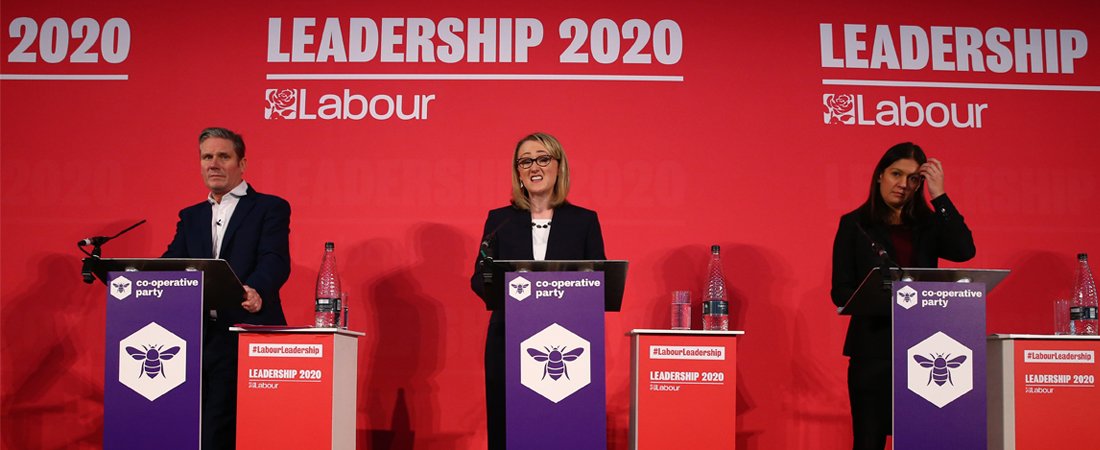This Budget will be the first opportunity for the Prime Minister and his new Chancellor to deliver some substance for voters who backed their Party at the election – and show they were right to do so.
Front of mind for the Prime Minister and Chancellor will be the realisation that their long-term majority is dependent on delivering – in particular – on the expectations of those Labour voters in the ‘Red Wall’ who lent the Tories their vote.
The contents of the Budget – and how it is received – will be clarifying for the Labour Party on the scale of the challenge to win back the voters who were lost to Boris’s election winning coalition.
That Labour’s response to the Budget next week will come from its outgoing duo of Jeremy Corbyn and John McDonnell says something. It’s been almost three months since Labour’s worst election defeat in 84 years and the lengthy timetable agreed by its National Executive Committee means there is still a month to go until its contest for a new leader is over. This has been criticised for compounding the party’s problems with its focus being elsewhere when there have been many opportunities for an effective Opposition to hold to account a government that no-one could say was without its issues.
Labour’s response to this Budget is unlikely to be strategic – or tell us much about how they intend to go about building their own winning electoral coalition. McDonnell, for his part, has set out tests in advance for the Budget to meet. These are on fair taxation; investment to end austerity; on the climate emergency and a social emergency he says is due to a chronic lack of investment in public services by the Government. The Party has published new analysis showing what they claim is a £194bn hole in Government infrastructure spending that has massively weakened the UK’s flood defences, and left bus services and the rail network fragmented – issues that are felt across the country, including in those key lost seats.
How will a new Leader approach building their own election-winning formula?
All three remaining hopefuls for the Labour leadership have set out some detail on the direction of travel if they should win. However, there has been a disciplined focus on who the electorate is in this leadership contest – it is not the wider country – and none of the candidates have strayed too far from the previous manifesto’s economic platform. Even frontrunner Starmer, seen as the most centrist of the trio, has committed to support the Green New Deal, to common ownership of rail, mail, energy and water, to increase income tax for the top 5 per cent of earners and reverse cuts in corporation tax.
Whichever vision wins out, it’s worth remembering that some of Corbyn’s ideas did chime with the public and contributed to a shift in the Government’s agenda in key areas, such as the energy price cap and water companies being told to slash bills. Labour’s new team will be keen to continue to hold the government to account and this time – to get the credit for this from voters.
An urgent issue for the new Labour leadership will be how to win back those ‘Red Wall’ voters that deserted them. The local and mayoral elections in May will be an early test for the new leader. Reuniting the party is seen as a priority and many of the proposals set out by the Labour leadership candidates include measures to tackle issues internally such as: changes to party committees; addressing Anti-Semitism; as well as to look at how to broaden appeal to voters beyond London and urban centres.
But other wounds must be healed too. Since the election, much has been made of how much Brexit, and Labour’s seemingly convoluted position on it was (or was not) to blame for the loss of seats for the party in December. Many former Labour voters, including many of those in the so-called Red Wall seats, saw it as a final straw, symptomatic of how much the party didn’t listen to them, and had coalesced around the middle-class city-dweller vote. Many of these voters will have held their nose and voted Labour in 2017 but found themselves unable to do so this time.
For the new Leader – whoever that may be – there is much housekeeping to do and to do quickly. If the Party is to exert influence and win power, it needs a strategic response to Boris’ formidable capture of seats from Beaconsfield to Bolsover. The coming months will demonstrate whether the broader Party really has moved on from Corbynism.
This blog has been taken from our new report, ‘The Budget: Balancing Business, Bolsover & Beaconsfield‘. Click here to download the full report.

